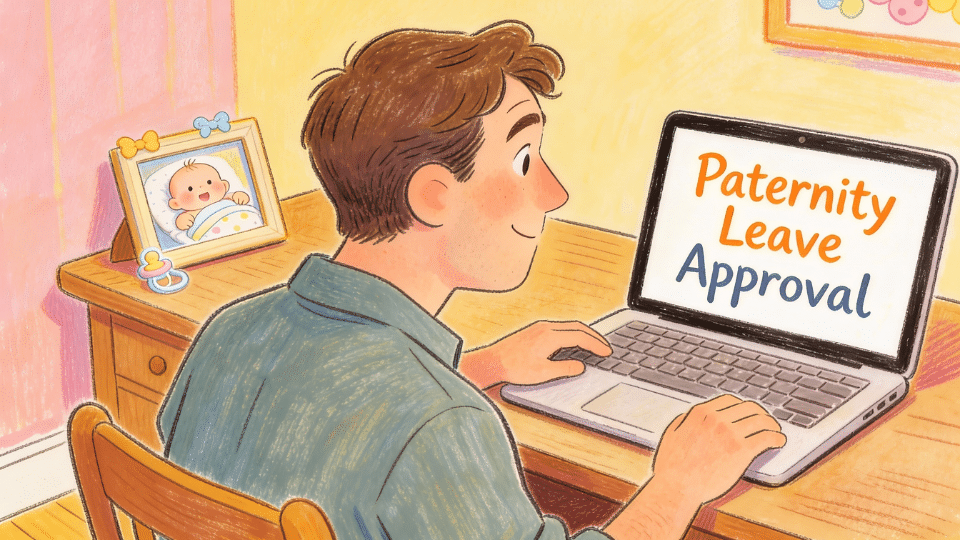Sarah thought her boss would be happy when she shared her pregnancy news, but she got fired three weeks later.
Well, Sarah isn’t the only one. This exact heartbreaking situation happens to thousands of working women across America every year.
Many employees assume pregnancy provides automatic job protection, but the reality is more complicated.
Employers can still legally terminate employees under certain conditions.
The key lies in understanding the difference between lawful termination and illegal discrimination.
This blog will help you understand your legal protections, recognize warning signs of discrimination, and know exactly what to do if you face unfair treatment.
Want to understand more about workplace rights? Check out this guide on quid pro quo harassment and how it can impact employees.
Can You Get Fired For Being Pregnant?
Federal law prohibits employers from terminating employees solely because of pregnancy.
The Pregnancy Discrimination Act treats pregnancy discrimination as a form of sex discrimination, making it illegal under Title VII.
However, employers can still terminate pregnant employees for legitimate, non-discriminatory reasons such as:
- Poor job performance was documented before pregnancy disclosure
- Company-wide layoffs or restructuring
- Violation of company policies unrelated to pregnancy
- Business closure or downsizing
The key distinction lies in the motivation behind the termination. If pregnancy influences the decision in any way, the firing becomes illegal discrimination.
Situations like poor job performance, company-wide layoffs, or business closure may justify termination, but it’s important to know the difference between being laid off vs. terminated
Laws Protecting Pregnant Employees
Three major federal laws create a safety net for pregnant workers.
These laws work together to prevent discrimination, guarantee job protection during leave, and ensure reasonable accommodations when needed.
- Pregnancy Discrimination Act (PDA): The Pregnancy Discrimination Act prohibits firing, demoting, or refusing to hire someone because of pregnancy.
- Family and Medical Leave Act (FMLA): The FMLA grants eligible employees up to 12 weeks of unpaid leave for pregnancy and childbirth with guaranteed job protection.
- Americans with Disabilities Act (ADA): The ADA covers pregnancy-related complications that substantially limit daily activities.
Pregnancy Rights for New and Probationary Employees
New employees and those on probation often worry that their pregnancy protections are weaker or non-existent, and this concern is understandable but slightly incorrect.
Let’s address the two most common situations:
1. Can You Get Fired for Being Pregnant During Probation Period?
No, you cannot be fired simply for being pregnant during your probation period.
Many employees worry that pregnancy protections don’t apply during their probationary period.
Although federal law provides clear protection regardless of your employment status.
The Pregnancy Discrimination Act (PDA) covers all employees at companies with 15 or more workers, including those in probationary periods.
Your employer cannot terminate you only because of your pregnancy, even if you’re new to the position.
However, keep in mind that employers still have the right to dismiss employees for legitimate performance issues unrelated to pregnancy.
2. Can You Get Fired for Being Pregnant at a New Job?
No, You cannot be fired for being pregnant at a new job, as anti-discrimination laws protect you from your first day of employment.
While your job is protected from pregnancy discrimination, you need to work for a full year before you can take unpaid family leave.
This actually creates a gap where you have job protection but no paid maternity leave.
Signs of Pregnancy Discrimination at Work

Pregnancy discrimination isn’t always obvious.
It may begin with small shifts in performance reviews, missed opportunities, or reduced support. Watch for these signs that point to discrimination:
1. Sudden Performance Issues
If you suddenly get bad performance reviews right after telling your boss you’re pregnant, this is a warning sign.
This is especially true if your reviews were good before.
Write down when you announced your pregnancy and when the bad reviews started, and compare your old reviews with the new ones to see the difference.
2. Denied Accommodations
When employers refuse reasonable requests for pregnancy-related accommodations while readily providing similar support to other employees, this indicates clear discriminatory treatment.
For example, if your company allows modified schedules for employees with back injuries but denies your request for additional bathroom breaks due to pregnancy, this constitutes discrimination.
3. Being Left Out
If you’re suddenly not invited to important meetings or taken off projects after announcing your pregnancy, this could be discrimination.
Maybe you used to lead big projects, but now you’re not included.
Pay attention if you’re removed from email lists, lose leadership roles, or miss out on planning meetings you used to attend.
4. Pressure to Quit
If your boss suggests you should quit, questions your commitment, or pushes you to take unpaid time off too early, that’s discrimination.
Comments like “Maybe you should stay home with the baby” or “This job is too hard for pregnant women” are illegal.
Your employer can’t decide what you can handle based only on your pregnancy.
Can You Sue for Being Fired While Pregnant?
Legal action may be possible if you can demonstrate that pregnancy was a motivating factor in your termination.
Success in pregnancy discrimination cases typically requires. These are the steps you can follow in case you are wondering what to do if you suspect pregnancy discrimination.
1. Establishing a Prima Facie Case
- You were pregnant or affected by a pregnancy-related condition
- You were qualified for your position and met job expectations
- You experienced adverse employment action (termination, demotion, etc.)
- The timing and circumstances suggest pregnancy played a role
2. Keep the Documentation Ready
Before considering legal action, take these essential steps:
Gather Evidence
- Save all employment records, including performance reviews and communications
- Document incidents of discriminatory treatment with dates and witnesses
- Keep medical records related to your pregnancy and any work restrictions
- Preserve emails, text messages, or written communications about your pregnancy
Internal Reporting
- File a complaint with your HR department following company procedures
- Request written responses to any accommodation requests
- Keep records of all internal communications about your complaint
3. Time Limits for Filing Claims
Strict deadlines apply to pregnancy discrimination claims. You must file a charge with the Equal Employment Opportunity Commission (EEOC) within:
- 180 days in states without fair employment agencies
- 300 days in states with approved fair employment agencies
Missing these deadlines can bar your claim entirely, making prompt action essential.
How to File a Claim or Lawsuit against Pregnancy Discrimination?
If you believe you were illegally terminated due to pregnancy, you must file with the EEOC before pursuing court action.
Step 1: File an EEOC Charge
Before filing a lawsuit in federal court, you must first file a charge with the EEOC.
This administrative process involves:
- Completing an intake questionnaire online or by phone
- Providing detailed information about the discrimination
- Submitting supporting documentation
- Participating in EEOC investigation processes
Step 2: EEOC Investigation Process
The EEOC may pursue several approaches to resolve your charge:
- Mediation: Voluntary discussion between you and your employer with a neutral mediator to reach a settlement agreement.
- Investigation: The EEOC reviews evidence from both parties and may request additional documentation or conduct interviews.
- Conciliation: If the EEOC finds reasonable cause for discrimination, it attempts to reach a settlement before litigation.
Step 3: Right to Sue Letter
If the EEOC cannot resolve your case, it will issue a “right to sue” letter, giving you 90 days to file a federal lawsuit.
Even if the EEOC doesn’t find cause, you may still pursue private legal action.
Potential Damages and Remedies
Successful pregnancy discrimination cases may result in:
| Damage Type | Description | Examples |
| Economic Damages | Financial losses directly related to discrimination | Back pay from the termination date to the trial |
| Non-Economic Damages | Compensation for intangible harm | Emotional distress compensation |
Conclusion
Pregnancy should strengthen your resolve, not weaken your job security.
While thinking “can you get fired for being pregnant” may have brought you here, you now have the answers and tips needed to stand firm against workplace discrimination.
The law is firmly on your side, with employers facing significant penalties for violations.
If you face suspicious treatment after announcing your pregnancy, trust your instincts, document everything, and seek legal advice immediately.
Have you ever faced pregnancy discrimination at work?
Share your story to help other expecting mothers spot the signs and feel less alone.
If you want to better understand the protections available, take a look at the legal framework that helps safeguard employees.
Frequently Asked Questions
Can you Be Fired Right Before Maternity Leave?
You cannot be legally fired for taking maternity leave. However, employers may terminate for unrelated, legitimate reasons like layoffs or performance issues.
How Much Can you Sue for Being Fired for Being Pregnant?
Compensation varies but may include lost wages, emotional distress, legal fees, and sometimes punitive damages. Settlement amounts depend on case strength and circumstances.
What Is a Wrongful Pregnancy Claim?
A wrongful pregnancy claim arises when medical negligence, like failed sterilization or contraception, results in an unplanned pregnancy and related financial or emotional damages.










